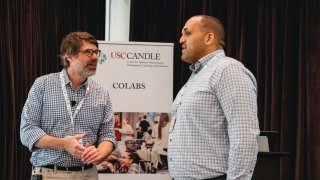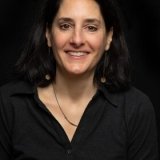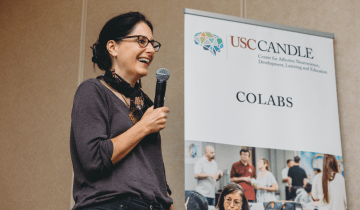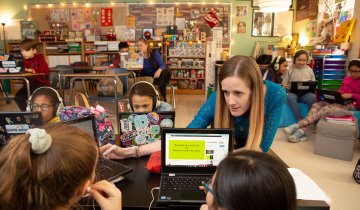The USC Center for Affective Neuroscience, Development, Learning, and Education (USC CANDLE), housed in the USC Rossier School of Education and the Brain and Creativity Institute, is launching a bold, dual-track initiative aimed at transforming adolescent education across California. Working in partnership with leaders in adolescent education, including Arizona State University’s Center for Whole-Child Education (CWCE), the initiative brings cutting-edge developmental science into classrooms, school systems, and policy environments—with a special focus on elevating alternative school communities as leaders in innovation.
“This initiative reflects our belief that adolescence is a crucial stage and presents a powerful opportunity to support intellectual growth, emotional connection and deep learning,” said. Mary Helen Immordino-Yang, founder and director of USC CANDLE. “Through this partnership with the Center for Whole-Child Education, we’re scaling what science tells us is critical—while learning directly from the educators doing this work every day, especially in the most relational and agile learning environments.”
The first track of the project, co-led with CWCE, will engage researchers, educators and policymakers to identify and disseminate the active ingredients that make adolescent-focused initiatives effective. The goal: help California’s educators and leaders better understand, align and sustain investments in initiatives like the California’s Golden State Pathways Program and the Community Schools Partnership Program by rooting them in developmental science.
“Our work is rooted in the observation that young people learn best when learning environments respect and address their whole development,” said Tami Hill-Washington, executive director of ASU’s Center for Whole-Child Education. “This collaboration aligns the best developmental science with the practice-based insight of educators, giving California a powerful model for lasting systems change in secondary education that can help adolescent learners thrive emotionally, cognitively and socially.”
The second track expands USC CANDLE’s signature COLAB program—a year-long, research-practice innovation lab—into alternative high school settings. Educators, innovators, administrators and leaders from schools serving those often not well-served by traditional school systems will participate in immersive professional learning and collaborative inquiry, translating developmental science into their unique school contexts. This element of the project is designed not only to apply existing research but also to generate new insights from these often-overlooked educational spaces. This work will help improve how alternative schools support teens’ learning, emotional well-being, and overall development.
“As a university-based center, the team at USC CANDLE is committed to creating bridges between developmental research and real-world impact,” said Pedro Noguera, dean of the USC Rossier School of Education. “This dual-track project does exactly that—supporting California’s education systems from both the top down and the ground up and ensuring that youth in all learning contexts are centered in our vision for the future.”
“This is about rethinking high school itself,” added Kori Street, executive director of USC CANDLE. “CANDLE is bringing science into conversations about equity, well-being and opportunity. This project offers a unique chance to shape systems change by empowering the educators and students most often left out of traditional reform efforts.”
Over the coming year, USC CANDLE and the Center for Whole-Child Education will host convenings, produce actionable reports and educator-facing resources, and support collaborative research on adolescent learning. The initiative aims to influence local and statewide practices while modeling a new kind of partnership among science, policy and practice.
Funding for this initiative was provided in part by the Stuart Foundation. To learn more or explore partnership opportunities, visit candle.usc.edu.
About USC CANDLE
The University of Southern California Center for Affective Neuroscience, Development, Learning, and Education (CANDLE) bridges developmental neuroscience and real-world education. Through transdisciplinary research, practice-based innovation and bold policy engagement, USC CANDLE helps schools design learning environments where adolescents can thrive.
About the Center for Whole-Child Education
Part of Arizona State University’s Mary Lou Fulton College for Teaching and Learning Innovation, the Center for Whole-Child Education (CWCE) advances equitable learning environments by integrating insights from educator practice, scientific research, and student experience. CWCE builds on the legacy of Turnaround for Children and is a national leader in whole-child educational reform.
About the Stuart Foundation:
The Stuart Foundation is dedicated to transforming public education so that all young people thrive. Through strategic investments, the Foundation works to advance thriving adolescents by creating equitable systems.





